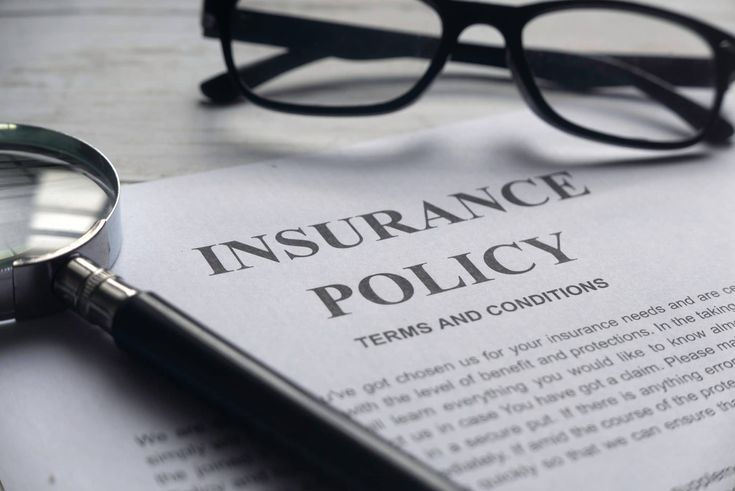What Factors Should You Consider When Purchasing RV Insurance?
- Bowthorpe & Associates
- Jul 7
- 5 min read
Whether you’re a weekend road tripper or a full-time traveler embracing the open road, having the right RV insurance is essential. It protects not only your vehicle but also your financial well-being. However, navigating the complexities of RV insurance can be overwhelming. From legal requirements to lifestyle considerations, many variables influence the type of policy you need. With the wrong coverage, you could be left vulnerable during an accident, theft, or natural disaster.

Bowthorpe Insurance is here to guide you through the critical factors you should evaluate before selecting a policy. By the end of this guide, you’ll feel more confident and informed, ready to select RV insurance that matches your budget, lifestyle, and risk profile.
Assessing Your Risk and Usage Habits
To begin, consider how you plan to use your RV. If you only use it occasionally for vacations or seasonal trips, your insurance needs may be relatively basic. However, if you plan to live in your RV full-time, you’ll require a more comprehensive policy that functions similarly to homeowners insurance. The frequency of use and your travel habits are vital elements that influence the level and type of coverage you’ll need.
In addition, take an honest look at your driving record and RV experience. If you’re new to operating an RV or have prior traffic violations, you may be categorized as a higher-risk policyholder, which could increase your premiums. Likewise, the make, model, and age of your RV will influence your quote. A newer Class A motorhome will likely cost more to insure than an older travel trailer, due to the potential cost of repairs and replacement.
Knowing State Insurance Requirements
RV insurance requirements vary across the United States. Each state sets its own minimum liability coverage limits, and these legal thresholds can differ widely. For instance, California requires liability insurance with limits of at least $15,000 per person and $30,000 per accident, along with $5,000 for property damage. Other states, such as Maine or New Hampshire, may impose different minimums or offer additional considerations for part-time RV users.
Before you begin comparing quotes, it’s crucial to research the insurance laws in your home state as well as any states you regularly travel through. Being aware of these legal requirements not only keeps you compliant but also ensures that you’re not underinsured in the event of an accident. You don’t want to discover too late that your policy doesn’t meet the liability requirements of a state where you’ve had a collision.
Comparing Coverage Options
Once you’ve assessed your risk and understand your state’s mandates, you can begin evaluating the types of coverage available. Most RV insurance policies offer a range of standard and optional protections. At a minimum, you should carry liability coverage, which pays for injuries or property damage you cause to others. If you want to protect your own RV, consider collision coverage for accidents and comprehensive coverage for non-collision events like theft, vandalism, or severe weather.
If you’re living in your RV full-time, additional protections like full-time liability, personal property coverage, and medical payments coverage become important. You might also want to add roadside assistance, which can be especially valuable if you travel in remote areas or across long distances. Not all policies include it automatically, so it’s wise to check.
Every insurer structures its coverage differently, so it’s important to request detailed quotes and compare them side by side. Online quote tools make this easier, allowing you to enter basic information about your RV and travel habits and receive tailored pricing in return. These tools can help you determine which provider offers the best value for your particular circumstances.
Managing Costs Without Losing Protection
Affordability is always a key consideration when choosing insurance. Fortunately, there are several ways to manage your premium costs without compromising your coverage. For example, many insurers offer discounts for bundling your RV insurance with your auto or home policy. Others reward drivers for maintaining a clean driving record or completing a certified safety course.
Some RV owners also reduce their premiums by choosing higher deductibles, but this means you’ll pay more out-of-pocket if you file a claim. Consider your financial comfort level before making this trade-off. If you only use your RV seasonally, you may also be eligible for storage or part-time use discounts. These policies allow you to suspend certain coverage types when your RV is not in use, helping you save money during the off-season.
Be proactive about reviewing your policy every year, particularly if your travel habits or RV features have changed. This can help you catch outdated or excessive coverage and make necessary adjustments before your renewal date.
Understanding Policy Terms and Coverage Limits
Insurance policies are filled with industry-specific language and fine print. Although it’s tempting to skim, it’s essential to read every section thoroughly. Key areas to review include coverage limits, deductible amounts, exclusions, and definitions of terms like “total loss,” “partial damage,” or “accessory coverage.”
One critical decision is choosing between replacement cost coverage and actual cash value (ACV). Replacement cost coverage reimburses you for the amount needed to buy a new equivalent RV, which is ideal if your current RV is new or has valuable upgrades. ACV, on the other hand, factors in depreciation, resulting in a lower payout. While ACV policies usually come with lower premiums, they can leave you with significant out-of-pocket costs in the event of a total loss. If you’ve heavily customized your RV or want full reimbursement in case of theft or damage, replacement cost coverage is often the better option.
Customizing Your Policy for Unique Features
No two RVs are exactly alike. Many owners invest in custom upgrades such as solar panels, satellite systems, high-end appliances, or luxury interiors. Unfortunately, standard RV insurance policies may not automatically cover these enhancements. To ensure full protection, you’ll need to list these features on your policy and purchase additional coverage, often known as riders or endorsements.
It’s wise to document your upgrades with receipts, installation records, and photographs. If you ever need to file a claim, this documentation can streamline the process and improve the chances of receiving full compensation for your investment. Customizing your policy to reflect your RV’s unique setup helps you avoid future frustrations and financial losses.
Choosing Between Brokers and Direct Providers
Deciding whether to work with a broker or buy directly from an insurance provider can influence your overall experience. Insurance brokers can simplify the process by comparing multiple providers on your behalf. They’ll take into account your specific needs and guide you toward policies that offer comprehensive coverage at a fair price. Brokers are especially helpful if you’re insuring a high-value RV or need help understanding technical policy details.
Purchasing directly from an insurer can be quicker and potentially more affordable, especially if the company offers online tools and customer support. However, it limits your access to policies from other insurers. If you’re comfortable doing your own research and don’t need one-on-one assistance, this may be a convenient route.
Final Thoughts: Invest in the Right RV Insurance
Selecting RV insurance isn’t just about fulfilling legal obligations—it’s about protecting the lifestyle and investment you’ve worked hard to build. By evaluating your usage, understanding the laws, comparing coverage types, and staying proactive about updates, you’ll be in a strong position to choose a policy that brings peace of mind on every journey.
Bowthorpe Insurance is committed to helping RV owners like you find the perfect coverage. Whether you’re just starting your search or need a second opinion on your existing policy, our team is here to guide you every step of the way. With the right RV insurance in place, you can focus on what matters most: exploring new destinations and making unforgettable memories.





Коментари